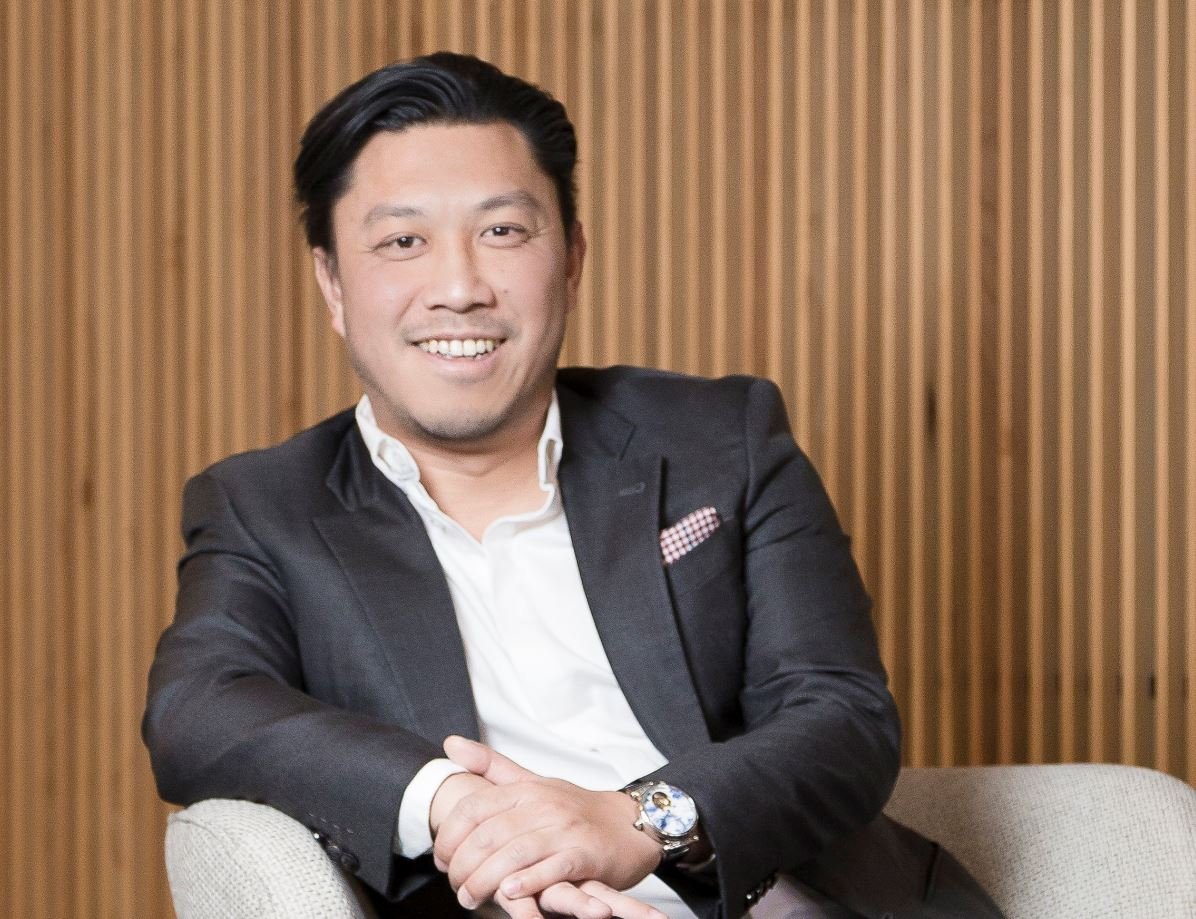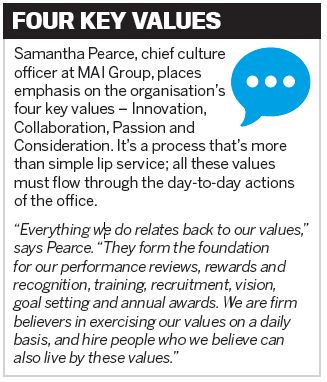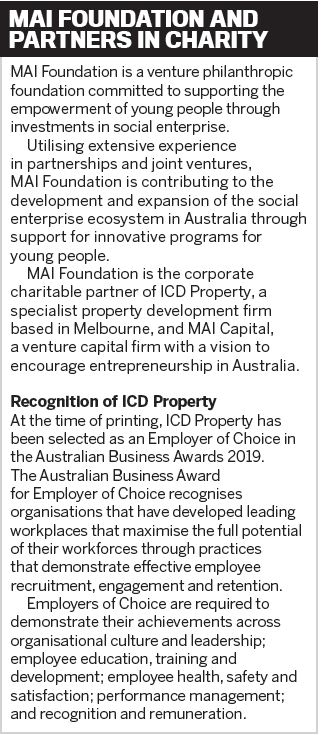
Delivering a first-class customer experience begins with providing your employees with a first-class workplace experience. HRD talks to Michael Mai, founder and CEO of MAI Group, about what the organisation has been doing to develop a strong workplace culture

Creating a successful workplace culture should ideally be the foundation of any business that expects to enjoy a long lifespan in the marketplace. Yet many businesses take the opposite approach, aiming to build success first – whatever that may look like – and company culture later. It’s a misguided approach, one that doesn’t account for the fact that company success is closely tied to company culture.
But for Michael Mai, founder and CEO of MAI Group, the approach to developing a positive workplace culture has been integral since day one. With chief culture officer Samantha Pearce at his side, the two work to make MAI Group an environment in which every worker can thrive. The involvement of the HR team has been critical too.
HR support for strategic goals
Hiring the right people, Mai and Pearce stress, is crucial to allowing the business to achieve its goals and continue to grow. MAI Group has one HR staff member per 10 employees – an indication of how seriously the company takes its commitment to providing a positive work environment. They work with employees to develop their career paths and life goals.
“We do this to highlight how important people are,” says Pearce. “We want to implement a positive culture and always be there with an open door so that employees can feel supported.”
HR also has a key role to play in supporting MAI’s employees who may have outgrown their roles in the company and are looking for new challenges. With so many HR staff in play, opportunities and challenges alike can be spotted easily.
“One of the key things is to look at their passions, both inside and outside of work,” says Pearce. “We’re very invested in what makes our staff happy both personally and professionally, and there may even be an opportunity for them to move within the business itself to a new position.”
Pearce points to a specific example from last year, when one of the accounting team decided that he was seeking to move in a new direction.
“We discovered his passion had changed after seeing our development managers in action,” says Pearce. “We supported him with a career change and an opportunity over three months to show how much he wanted the chance of an assistant development manager role in the business.”
Ultimately, his passion shone through and he was offered a permanent role after the usual three months’ probation. In June, he was presented with the MAI Group’s Annual Passion Award. It’s just one example of the wider way that the business seeks to match people’s passions to their workplace roles.
Finding the X factor
Samantha Pearce emphasises that it’s what makes employees different from other staff – rather than similar to the status quo – that is sought after.
“Before we recruit a new team member, we look at the manager, their existing skill set and those of the surrounding team,” says Pearce. “Once we’ve done this, we look at complementary skills that prospective employees might have; we don’t want to have a homogenous organisation.”
Pearce uses filters, asking numerous questions to ultimately lead to the desired outcome of getting to know the person and seeing if they are aligned with the business.
“These questions can seem endless, but they’re probing,” says Pearce. “We want to find each candidate’s X factor – their unique qualities that they can bring to the organisation.”
Mai points to his management team as an example.
“At the moment, there are seven of us,” he says. “All of us have different backgrounds and degrees – property, construction, conveyancing and superannuation are just some of the ones that spring to mind.”
But the unifying force between these disparate backgrounds, Pearce says, is the passion everyone has for property.
“We want to create an environment where people can be champions,” she says.

Mai echoes Pearce’s sentiments, noting that he doesn’t look for specific talents per se – rather, he wants employees who know who they are and what they want. It’s an approach born out of a curious hybrid of both his own business experience and inspiration from the TV show Suits. He expounds the benefi ts of what the company refers to as the ‘Donna Model’.
“Before starting MAI Group, I had previous EAs that didn’t work out,” Mai explains. “A lot of that was because I didn’t really know who I was, or what I wanted.”
Suits, Mai says, provided him with a number of key insights into himself and what he wanted out of both his workplace and life, as well as how a good EA operated.
“I didn’t know if it was realistic or not,” he says. “I had no idea if that’s what corporate EAs could really be like, but I knew it’s what I wanted – and that helped me develop clearer goals.”
Perhaps the most direct inspiration came from the character of Donna, who serves as an EA within the show’s universe.
“She was an amazing character, who would assist the directors and pre-empt tasks to make their lives easier,” says Mai. “I knew that I had to fi nd my own ‘Donna’, and things would fl ow from there.”
Reaching out to Michael Page Recruitment to help fill this position, the resulting premeetings were far from traditional. Mai says he asked two things:
1. Have you watched the TV show Suits?
2. Can you find me a ‘Donna’?
“Michael Page was so intrigued with this unusual way of recruiting that they tasked their MD, David George, to oversee the process,” says Mai. “It was a fun process; recruiters can be dull, so it was great to fi nd someone who was so attuned and committed to what we wanted.”
“When going to meet Michael Mai I didn’t know what to expect,” says David George, managing director of PageGroup. “The initial meeting was booked in to discuss how Michael Page could partner with MAI Group and assist with a recruitment assignment. It sounded like a traditional recruitment pitch.”
This impression quickly shifted, though.
“The moment Michael walked into the room I realised it was anything but a standard recruitment pitch,” says George.
“The traditional questions and job brief training quickly went out the window and the meeting was about asking the right questions to truly understand Michael and the type of person who would embrace his energy and passion in business and life.”
After much searching, the Michael Page team suggested Emma Lindell. Since taking on the position, she has proven herself to be an invaluable member of the team.

It’s a model that has expanded beyond MAI as well; since recruiting Lindell, several other companies have reached out to MAI Group to try to replicate the results.
“City Tattersalls has been one of them,” says Pearce. “Their CEO wanted to use the ‘Donna Model’ after seeing how this role supported Michael in achieving his daily goals.”
Work-life integration
Though conversation tends to revolve around work-life balance in the modern workplace, Mai and Pearce take a bigger-picture view – work-life integration is their goal. The two categories have too often been split into separate arenas, says Pearce, and that’s frequently what’s contributed to employee dissatisfaction in the wider employment sphere.
“Your job isn’t really ‘work’, split off separately from the rest of your life,” Pearce says. “It’s actually part of your life. Accordingly, we’d like to make the distinction between the two more seamless, so that you enjoy your life more on the whole.”
In practical terms this translates into a variety of workplace perks, including longer leave periods, healthy lunch initiatives, milestone gifts, career counselling, work-fromhome arrangements, employee recognition, and more. Mai also puts great emphasis on the value of inter-office camaraderie.
“Obviously, if you like your co-workers you’re going to enjoy your time at work more,” says Mai. “So we do a lot to encourage friendships among staff , and we make sure that people are given the opportunity to socialise.”
It’s an approach that the organisation also tries to extend beyond the office. There’s an acknowledgement of the diverse structure of modern families, and that is kept in mind when giving employee rewards.
“If you have a partner, you might receive a romantic dinner,” says Pearce. “But if you’re single, we might provide a life experience reward instead.”
Family days are held regularly so that other family members can feel integrated into the wider family of the organisation. Additionally, Mai places great importance on every family member having access to the management team to encourage greater communication.
“Being at the workplace takes up a lot of a person’s time, and we want to make sure that it’s not negatively affecting their home life.
“The more we give staff the more they give back,” says Mai. “With our ability to be agile and inclusive, everyone wins.”
Looking ahead
Of course, workplace culture isn’t just about planning for the present; it’s about preparing for the future too. For MAI Group, that means increased growth, while still retaining the familiarity and intimacy of its current culture. Mai sees no contradiction between rapid expansion and culture retention.
“Fast growth creates an environment which enables everyone to grow and help each other in a non-competitive and supportive way,” says Mai. “We want everyone to be successful but not directly compete with each other – we can all be successful, and we are all good at different things.”
And for any aspiring CEOs or HR specialists in the making, Mai has one last piece of advice.
“Follow what you are most passionate about in life – what gets you up in the morning,” he says. “Don’t give up looking for it until you find it, because there is a job out there for everyone.”